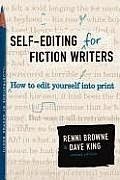DIALOGUE: A BALANCING ACT
Today’s post is the first in what I plan to be periodic postings on elements of writing craft. There are so many things to think about when you sit down to write a story. For today, let’s focus on TALK. DIALOGUE – A BALANCING ACT
 There are not many things a person can count on when it comes to living a writing life. (At least, some measure of rejection comes to mind, but let's focus on the positive!) One hallmark of strong writing is sharp, clean dialogue. Nothing conveys a sense of character more effectively than good dialogue. I don't think you can study the mechanics and fine points of it too much. Some writers are masters at comic pacing. Elmore Leonard, Elinor Lipman and Betsy Byars come to mind. Others are admired for their ability to pare down the words until the white spaces ooze with meaning. (Hemingway's Hills Like White Elephants is the example we usually think of in this context). Pull out your writing how-to books and you will read that dialogue serves two purposes: 1. To reveal character and 2. To advance plot. I am not one for absolute rules, so I acknowledge that dialogue may serve other subtle purposes as well. Be that as it may, your dialogue had better reveal character and advance plot or it is not carrying its weight.
There are not many things a person can count on when it comes to living a writing life. (At least, some measure of rejection comes to mind, but let's focus on the positive!) One hallmark of strong writing is sharp, clean dialogue. Nothing conveys a sense of character more effectively than good dialogue. I don't think you can study the mechanics and fine points of it too much. Some writers are masters at comic pacing. Elmore Leonard, Elinor Lipman and Betsy Byars come to mind. Others are admired for their ability to pare down the words until the white spaces ooze with meaning. (Hemingway's Hills Like White Elephants is the example we usually think of in this context). Pull out your writing how-to books and you will read that dialogue serves two purposes: 1. To reveal character and 2. To advance plot. I am not one for absolute rules, so I acknowledge that dialogue may serve other subtle purposes as well. Be that as it may, your dialogue had better reveal character and advance plot or it is not carrying its weight.
 Here's a bit of dialogue from one of Hilary McKay's books about the Casson family. If you're not familiar with these books, I highly recommend them. There are five books in the series, beginning with Saffy's Angel and ending with Forever Rose. They are about an "eccentric and muddled artistic family" of four children, (three girls and a boy). The children call their parents Eve and Bill. Eve and the children live outside the city, while Bill lives in a studio apartment in London. In the first chapter of the second book in the series, Indigo's Star, McKay provides readers with a reminder of the back-story. Rather than slow down the narrative with a tedious recital of events already disclosed in the first book, McKay enlivens this section with dialogue, using it to entertain as well as to remind readers of the Casson family and their unique circumstances. She reveals character and, in a sense, advances plot, setting the stage for what happens next.
Here's a bit of dialogue from one of Hilary McKay's books about the Casson family. If you're not familiar with these books, I highly recommend them. There are five books in the series, beginning with Saffy's Angel and ending with Forever Rose. They are about an "eccentric and muddled artistic family" of four children, (three girls and a boy). The children call their parents Eve and Bill. Eve and the children live outside the city, while Bill lives in a studio apartment in London. In the first chapter of the second book in the series, Indigo's Star, McKay provides readers with a reminder of the back-story. Rather than slow down the narrative with a tedious recital of events already disclosed in the first book, McKay enlivens this section with dialogue, using it to entertain as well as to remind readers of the Casson family and their unique circumstances. She reveals character and, in a sense, advances plot, setting the stage for what happens next.Rose and Indigo were the two youngest of the Casson family. Saffron was fourteen, and Caddy, the eldest, was nineteen. Caddy was home for the weekend, partly for Indigo's sake, because of going back to school, and partly in honor of Rose's new glasses. Caddy often came home, but the children's father did not. He preferred his studio in London, where he lived the life of a respectable artist, unburdened by family. "He comes home on weekends," said Rose's mother. "He doesn't," said Rose. "Nearly every weekend, when he can fit it in." "Only once since Christmas." "Well, Daddy has to work very hard, Rose darling." "So do you." "Daddy is a proper artist," said Eve, which was how she had always explained the difference between herself and Bill to the children. "A proper artist. He needs peace and quiet. . . . Anyway..." "Anyway what?" Eve gave Rose a painty hug and said she had forgotten what she was trying to say.
In 94 words of dialogue, McKay has given readers a lot of information about Eve and Rose and the children's father. Notice how clean this text is. There are only two dialogue tags, exactly enough to identify the speakers. Nothing more. After that, the conversation flows without interruption. And look how much you learn about Rose and her mother and father. 1. Rose thinks her father should spend more time at home. 2. Eve thinks of her husband as a "Real" artist, while she sees herself as something less. 3. Rose knows her mother doesn't take herself as seriously as an artist as her father does. And McKay conveyed all this with 94 words! She didn't explain what her characters were thinking. She let readers figure that out for themselves. She used repetition brilliantly to show Eve's state of mind. "Daddy is a proper artist," Eve tells her daughter, and then again later, in the same bit of speech, she says again, "A proper artist," and readers feel the weight of that judgment. Readers feel that Eve is struggling with this. What is a proper artist? Is Eve herself not a proper artist? Is her life more mundane and tedious because she is something different from her husband? All of those thoughts (and doubts) are in there. What can you take away from this example? 1. Use dialogue tags (he said, she said) sparingly. 2. Avoid direct address, particularly when your dialogue involves only two characters. Notice that McKay only has one instance of direct address in this passage. Eve says, "Well, Daddy has to work very hard, Rose darling." McKay has Eve address Rose by name for a purpose. It reveals Eve's character and her emotional state. Eve is working hard to justify her husband's absence, both to herself and to her daughter. Readers feel compassion for her because they can see this in the dialogue. Dialogue tags, without purpose, are clunky. They detract from the scene. Look what happens if you add dialogue tags and/or direct address willy nilly, without intention or purpose to this same scene. "He comes home on weekends, Rose" said Rose's mother. "He doesn't," said Rose. "Nearly every weekend when he can fit it in," said Rose's mother. "Only once since Christmas, Mum," said Rose. All this does is add verbiage. We lose some of the zip and flair. We are slowed down by unnecessary words.
 Renni Browne and Dave King's book, Self-Editing for Fiction Writers, contains an excellent discussion on dialogue. Read the two chapters in that book and then analyze particular passages of dialogue in books that you admire. Be daring when you edit your own dialogue. Remember to leave spaces for the reader to add their own understanding of a particular scene. This is another way of saying, don’t explain too much. Respect your reader’s intelligence. Part of the joy of reading is engaging in the process of deciphering human emotion and action by what is left unsaid. It’s subtle, but vitally important. The more you read dialogue with these thoughts in mind, you more you will appreciate the genius of those writers who convey enormous meaning in what is left unspoken.
Renni Browne and Dave King's book, Self-Editing for Fiction Writers, contains an excellent discussion on dialogue. Read the two chapters in that book and then analyze particular passages of dialogue in books that you admire. Be daring when you edit your own dialogue. Remember to leave spaces for the reader to add their own understanding of a particular scene. This is another way of saying, don’t explain too much. Respect your reader’s intelligence. Part of the joy of reading is engaging in the process of deciphering human emotion and action by what is left unsaid. It’s subtle, but vitally important. The more you read dialogue with these thoughts in mind, you more you will appreciate the genius of those writers who convey enormous meaning in what is left unspoken.
Published on October 08, 2014 05:20
No comments have been added yet.



